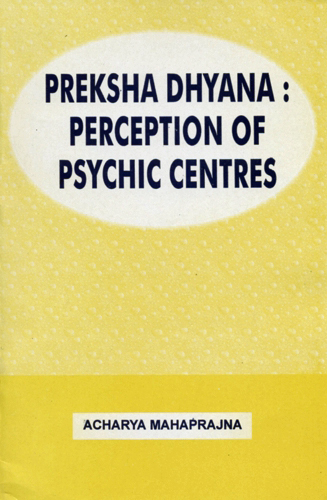Meditation has been routinely practised in both eastern and western countries throughtout all ages. Neverthless, it was believed to be a highly ritualistic performance practised by specially qualified persons. The purpose of meditation throughout history, appears to have been to attain transcendental experience which corresponded to religion (or philosophy) in which it was rooted, that is, it meant for many people some mystic experience involving theological ritual.
Development of life-sciences came much later than that of natural sciences. Here also, physiology—science of body - developed first while psychology—science of mind - developed later. Until very recently endocrinology (science of the endocrines—the ductless glands) was a little known branch of life-sciences. Recent advance of modern science in this field has revealed that the secretions from endocrines have tremendous influence on human nature and behaviour. Through the growth of our knowledge in psychology, we are able to understand the (psychological) roots of internal fear, hate, cruelty and such other emotional distortions. The analysis of human mind with the discovery of its power of projection and its hidden sub-conscious components make it unnecessary to ascribe mere mystical and ritual form to meditation. And with the substitution of knowledge for ignorance in the field of coordinatory neuro endocrine systems and their profound influence upon the mental states and tendencies of an individual, myths and superstitions about meditation are being replaced with scientifically established facts.
It is now recognised that meditation is not an irrational, emotional or religious experience but a deliberate mental operation of psychoanalysis and paychotherapy.
Today, eminent doctors, specialists and general practitioners alike, have realised that meditation is a powerful tool, both for healing and maintaining good health. Irrefutable scientific proofs now available show that meditation and consciously achreved total relaxation can cure and prevent any number of diseases which are caused by tension and stress. Scientific investigations have provided evidence that regular practice of meditation positively influences the control mechanism which is ultimately responsible for the homeostasis in the body. It porduces a more balanced equibirium between the sympathetic and the parasympathetic components of the autonomic nervous system. The benefits of meditational practice are measurable and can be otained by anybody who cares to learn the technique and practise it regularly.
Improvement of physical health and cure (and prevention) of serious illnesses without injurious drugs, though valuable contribution, is not the only or even the chief obective of meditation. It is, in reality, the apparatus for controlling one's irrational instincts of anger, aggression, cruelty, vindictiveness and fear. It is a tool for awakening and developing one's attitude and behaviour to be truly worthy of a human being. It is a "process of remedying inner incompleteness and reducing inner discord" as aptly stated by William James. The main objective of meditation is, thus, not to acquire physical goodness but to acquir total psychical goodness by eradicating all evil from one's thoughts, speech and action.
Meditation is a form of psychotherapy for destroying the repressing and repressed forces which have produced and would continue to produce inhuman tendencies, and irrational behaviour if not destroyed. Eradication of these forces would enable us to develop our true human nature and justify our claim of being the highest porduct of the cosmic process.
We now know that the irrational instincts and impulses emanate from the endocrines, and not from the brain. They not only generate feelings but also demand appropriate action to satisfy the need. All the impelling forces are produced by the endocrine secretions called hormones. Hormones have profound influence upon the mental states and tendencies, behavioural patterns as well as emotions of an individual. Frequent emotional stresses result in psychological distortions and irrational behaviour. It follows from this that for rational development of various personality factors, it is necessary to transmute the synthesization of the chemical messengers—hormones & neuro-hormones. It has been established by the use of the bio-feedback and other scientific measuring equipments that meditation has the power to alter the electrical activity of the nervous system as well as transmute the aythesization of the of the chemical messengers. Regular practice of perception of these psychic centres will (a) immensely strengthen the power of the unique human attribute—rational thinking and conscious reasoning, and (b) weaken the forces of irrational impuleses and primal drives. The cumulative effect of this two-fold transformation would ultimately eradicate the psychological distortions and irrational behaviour.
The scientific approach, however, should not be interpreted as viewing the age-old wisdom of philosophy to be entirely false or useless; for just as theological dogma cannot negate findings of science, no scientific discovery can ever negate an eternal truth. The significance of philosophical wisdom lies in the fact that the realisation of truth is not an inference of intelligence but a matter of experience, i.e. the truth must be realised by one's own efforts. And hence modern sciences and ancient philosophy together can pave the way for more truths and knowledge which may be woven into wisdom and used for the benefit of mankind. All that is necessary is that the ancient methodology and interpretation of philosophical wisdom be expanded, modified and restated in modern scientific terms. And the integrated wisdom thus obtained could be used to purify the vitiated and distorted tendencies of man. It would then enable men and women to learn to gain mastery over their bestial urges and attain compassion, bliss and happiness.
In the following chapters modern science and ancient philosophy are used together to emphasize the importance of the Perception of Psychic Centres.
 Acharya Mahaprajna
Acharya Mahaprajna

